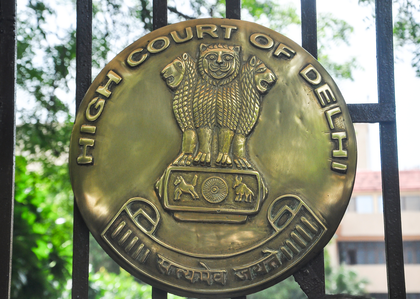No law student should be barred from exams due to shortage of attendance, orders Delhi HC
By IANS | Updated: November 3, 2025 15:25 IST2025-11-03T15:24:49+5:302025-11-03T15:25:06+5:30
New Delhi, Nov 3 The Delhi High Court on Monday ruled that no law student can be barred ...

No law student should be barred from exams due to shortage of attendance, orders Delhi HC
New Delhi, Nov 3 The Delhi High Court on Monday ruled that no law student can be barred from taking semester examinations or denied progression into the next semester solely on the ground of lack of minimum attendance.
A bench of Justices Prathiba M. Singh and Amit Sharma, while delivering its detailed verdict in the suo moto case registered in the wake of a suicide by a young law student, held that detention or academic penalty for lack of attendance cannot come at the cost of a student’s mental health or right to life.
The Delhi High Court, taking cognisance of the "debilitating impact" of rigid attendance norms on students, issued comprehensive interim directions while consultations by the Bar Council of India (BCI) for reforming attendance requirements across all law colleges and universities in India are underway.
"No student enrolled in any recognised law college, university or institution in India shall be detained from taking examinations or be prevented from further academic pursuits or career progression on the ground of lack of minimum attendance," the Justice Singh-led Bench directed.
It further clarified that while attendance may continue to be monitored, academic progression cannot be halted merely because a student falls short of the prescribed percentage.
Instead, colleges and universities have been asked to adopt ameliorative measures such as conducting extra classes, offering home assignments, or providing opportunities for practical legal work in lieu of attendance shortages.
The Delhi High Court ruled that students cannot be debarred from appearing in examinations, and if any student still falls short of the prescribed attendance at the end of the semester, the only permissible consequence would be a limited academic deduction — a reduction of up to 5 per cent in marks or 0.33 in CGPA.
Promotion to the next semester, the Delhi High Court said, "shall not be withheld merely on shortage of attendance".
The directions came as part of a wider set of reforms aimed at aligning legal education with the vision of the National Education Policy (NEP), 2020, which emphasises flexibility, holistic learning, and mental well-being over rigid classroom attendance.
"The absolute bar against appearing in an examination without fulfilling mandatory physical attendance norms as contained in Rule 12 of the Legal Education Rules, 2008, is contrary to the spirit of the NEP, 2020, as also the 2003 UGC Regulations," the bench observed.
The BCI has been asked to re-evaluate and modify its attendance norms for the 3-year and 5-year LL.B. programmes in consultation with all stakeholders, including students, parents, and teachers, and to incorporate credit for co-curricular activities such as moot courts, debates, and legal aid work.
Until such reforms are implemented, the Delhi High Court’s directions will operate across the country, ensuring that no law student is barred from exams or denied progression solely on the grounds of a shortage of attendance.
Disclaimer: This post has been auto-published from an agency feed without any modifications to the text and has not been reviewed by an editor
Open in app